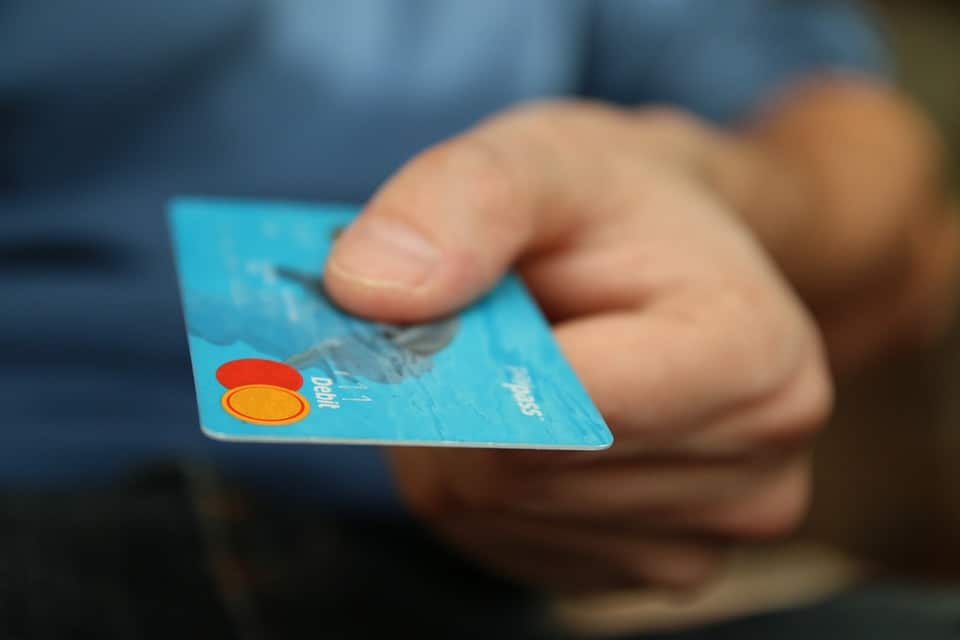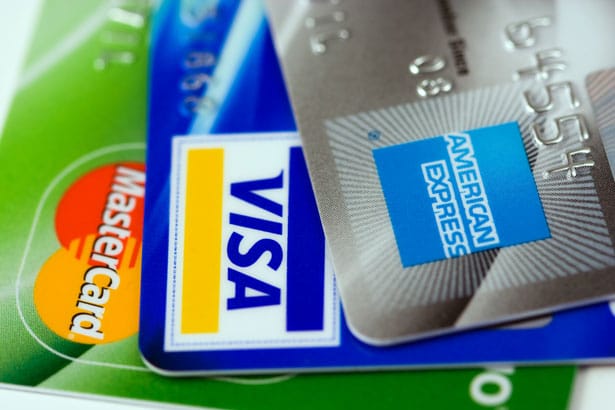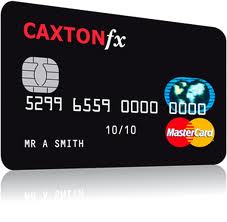Jasmine Birtles
Your money-making expert. Financial journalist, TV and radio personality.

Everyone wants cheap currency right?
Right now the pound is pretty strong against the euro, which means you get more money for your sterling! This makes it a great time to stock up on holiday euros, but getting the cheapest foreign currency possible is still a must.
Don’t be fooled by high-street claims of ‘commission-free’ currency – the profit is built into the price you pay overall. The only way to get good value foreign currency is by being savvy and planning in advance. We’ve got the cheapest ways to spend abroad, whether you like to put it on plastic or want hard cash. Read on for all the insider info.
First things first – there are certain places to not get your cash from:
If you’re organised and think ahead, the cheapest place to get your currency is online. You can compare rates without trekking around the high street by visiting comparison websites. For example, if you’re wiring money to the Philippines, you can benefit from these platforms as they can help you compare money transfer from the USA to the Philippines and get the best USD to PHP foreign exchange rate. Online outlets have fewer overheads and so tend to offer you better rates than on the high street, but always shop around.
The one drawback of buying currency online is paying for delivery. This has to be by courier as they are carrying sums of money and so it’s usually around £6 for delivery. However if you’re ordering a lot of currency (usually upwards of £500) you can get it delivered for free.
Even with delivery charges, it usually pays to avoid the high street and get online.
Moneycorp offers a unique currency exchange service. They provide a free next-day home delivery service (for orders worth £500 or more), or you can collect your cash from one of their branches (or even the airport) if you’d prefer. Completing a single €500 transaction online with Moneycorp costs up to £20 less than via a high street bureau – all from the comfort of your own home!
If you know you’re going on holiday to a certain destination and the exchange rate for the country’s currency is falling against the pound – like the euro is now – then it’s always worth buying some currency in advance to get more money for your pound. Keep an eye on exchange rates and plan ahead.
You can also sidestep delivery charges if you order online with Travelex. You can arrange to pick up your currency from your local bureau de change for free and they have an online guarantee to give you the best price on foreign currency. If you find a better deal elsewhere they’ll refund you the difference.
Many providers on the high street do now offer commission-free currency exchange. Of the high-street options, we like Marks & Spencer especially.
Thomson will match or beat any exchange rate you can find in the same area, so if you do get down the shops to buy your foreign cash, keep that in mind.
Remember, the only way to get the best deal is to shop around. Exchange rates can fluctuate daily, which means prices offered can really vary between different bureaux de change.
Using credit cards abroad can cost you big money.
The good news is credit cards normally use the exchange rate that banks themselves use (this is a good thing as this rate tends to be more competitive than the ones offered by bureaux de change).
The bad news: credit cards make their profit is by slapping fees and charges on top of this, which can make spending on your card abroad seriously pricey. But there are ways you can avoid being landed with these fees (or at least some of them).
If you want to use a credit card abroad the only way to avoid the fees is to get one tailored specifically for spending abroad.
The best cards for cheap foreign transactions at the moment are:
Halifax Clarity card – This card has no foreign exchange fee, nor does it charge for cash withdrawals. However you’ll be charged interest as soon as you withdraw your money (even if you repay in full). The rate for cash withdrawals is 12.9% APR – which isn’t bad.
Saga credit card – As you might expect, Saga’s card is only for over 50s (which is unfortunate for those under that age, as it’s a very good card!)
There are no loading fees anywhere in the world, and it offers you that valuable interest-free period for cash withdrawals (again, provided you repay your credit card bill in full and on time). If you do miss a payment, the interest rate you’ll pay on the cash withdrawal is 11.9% APR.
The Saga credit card does charge for ATM cash withdrawals, but only a relatively low 2% (minimum £2 charge).
Post Office credit card – This has no loading fees on foreign transactions anywhere in the world, giving you the best exchange rate. However it does charge a 2.5% handling fee on all ATM withdrawals (minimum £3) and the APR is 17.8%.

No matter what card you’re using, you’ve got to watch out in case the foreign ATM you choose charges a fee on top of all other fees levied by your home bank.
Also bear in mind that a credit card that’s great abroad is rarely a good deal when used at home. The credit card companies are banking on you being lazy or not realising that. Don’t fall for it – you can check out the current best credit cards for domestic use here.
Debit cards provide easy access to your cash abroad, but it normally costs to use them.
Most debit cards will charge you a withdrawal fee as well as a conversion and transaction fee. The conversion charge is usually a percentage of the transaction value, and the transaction fee can either be a flat fee or a percentage charge.

A debit card from Halifax will charge you a 2.75% conversion charge and then a flat-rate transaction fee of £1.50 for each time you use it. So if you either take £100 cash out, or spend £100, you’ll actually pay £104.25. Just over £4 might not seem like much, but these charges add up quickly.
Also if your debit card is lost or stolen – and it’s your main account – it can be more stress to sort out than simply cancelling a prepaid or credit card.
The Norwich and Peterborough Gold Classic Account is unique in that it has no transaction, ATM or purchase fees, but it charges a £5 fee unless you pay in at least £500 a month.
However unless you’re a frequent globetrotter, you’ll probably find that your needs are better met through a decent credit card or a prepaid travel card (discussed below).
Many card providers have twigged onto the fact that people are not so happy about paying credit or debit card charges, and have introduced prepaid credit cards designed especially for travel.
These are Visa or MasterCards that work just like any other debit or credit card, except you have to pre-load them like mobile phones – and we’re big fans of them at MoneyMagpie.
They have a number of points in their favour:

First you’ve got to look at the charges. We’ve listed the cards that don’t charge for foreign transactions below and put details in of all the charges they do make you pay.
Then you need to look at the exchange rates they’re offering. These cards make a lot of their money in what is called the spread of the exchange rate – the difference between the rate at which they buy the foreign currency on the wholesale market and the rate at which they sell it to you. It’s like any normal product – a shop will buy their products from a wholesaler, and then mark up the price and sell it to you. With these cards, some of them will add more on to the rate that they buy from the wholesaler than others. Sometimes this mark-up is called a foreign currency fee and other times it isn’t named.
This spread is how all bureaux de change make money, so it can’t be avoided. However if you look at the rates on offer when comparing the cards that have fewer charges, it will give you a guide as to which to go for.
Moneycorp Explorer Card
This fab card can be loaded with up to £10,000 in as many as 14 different currencies (no other prepaid card can match this), so it’s ideal for both single and multi-trip holidays. It’s PIN protected and valid wherever Visa is accepted. We love the option to ‘lock’ exchange rates so you won’t get caught out by negative currency movements.
FairFX.com Mastercard – ‘Anywhere Card’
This card is a really good deal. It has the most competitive transaction fees and offers business exchange rates which means you get more foreign currency for your pound.
Caxton FX Prepaid Currency Card
Ideal for travel and there are three cards, the global, dollars and euro, loaded with sterling, US dollars and euros respectively. Exchange rates are good and are fixed when you load the card. This means you could get more for your money if the currency is gaining against the pound.
Yes, these are the most retro form of travel money but they are still going strong. Travellers cheques are cash with a built-in security policy. They each have a unique ID so if you lose them or they’re stolen, you phone up American Express and they’ll replace them for you pretty much anywhere in the world, usually within 24 hours.
Depending on where you purchase travellers cheques, you might pay a fee to buy them. For example, at the Post Office you can buy all currencies of travellers cheque (there are five – US dollars, Australian dollars, Canadian dollars, euros and sterling) but if you buy sterling ones (to exchange in whatever country you go to) you’ll pay a 2% charge.
When it comes to cashing them in there aren’t any fees as long as you do it at any American Express fee-free partner. AMEX make their profit by charging the retail outlets that sell them (like the Post Office) so you won’t pay upfront to get them.
When you’re cashing them in, with a fee-free partner or without, you should always check the exchange rate. Some outlets offer much lower rates than others – for example it’s much better to cash them in at a bank than a hotel.
Be careful when you’re using your credit or debit card – you may be asked if you want to pay in the local currency or in pounds sterling.
This is a service called dynamic currency conversion (DCC) and it’s becoming increasingly popular in Europe, so there’s every chance you’ll be offered it on this year’s holiday.
Basically, if you choose to pay in pounds the retailer will convert your payment (instead of your card provider) which means they’re free to apply a poor exchange rate. You could end up paying a scary 4% more in extra fees!
So, when you use your cards on holiday (including getting money from an ATM) always opt for local currency. Your bank may still make you pay a conversion charge, but a retailer abroad will probably charge you much more.
Leave the credit cards at home (apart from one emergency one which you do NOT touch unless desperate – to get home, not for another bottle of sangria).
… then take it out in cash. It’s a great way of budgeting because you can physically see it dwindling through the holiday, and it really concentrates the mind.
Just remember that if your cash gets lost or stolen, you have no redress – once it’s gone it’s gone! So keep it in the safest place you can and only take some of it out with you each day.
On the subject of being safe and secure, make sure you get the best travel insurance deal before you go – a one-year policy will probably be the best value if you go away more than twice a year.
DON’T get lumbered with the over-priced policy your tour operator will try to sell. There’s a lot of competition on the market, so shop around online for the best value.
Need more information on travel insurance? Take a look at our guide here:


It may also be worthwhile checking out .MyTravelMoney. – it’s basically a comparison site for travel money and use it religiously when checking best value deals on trips.